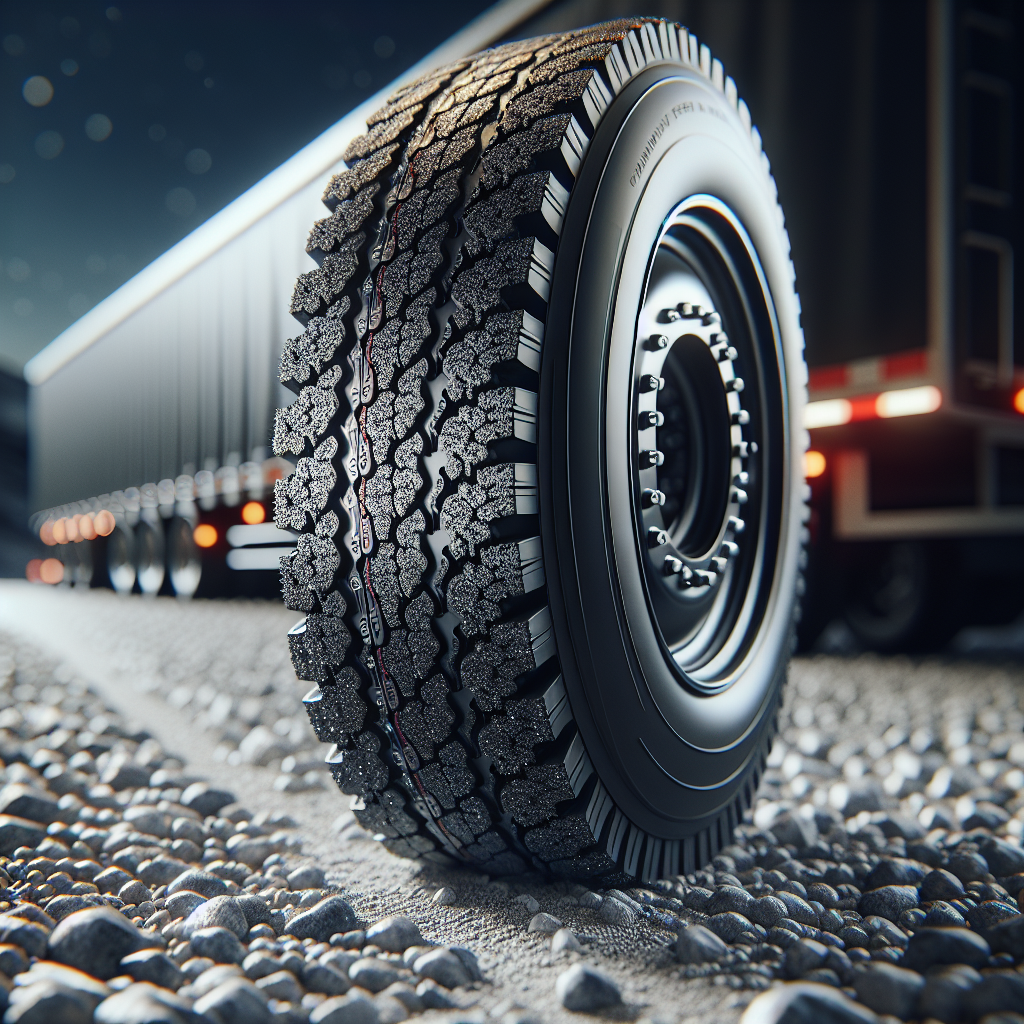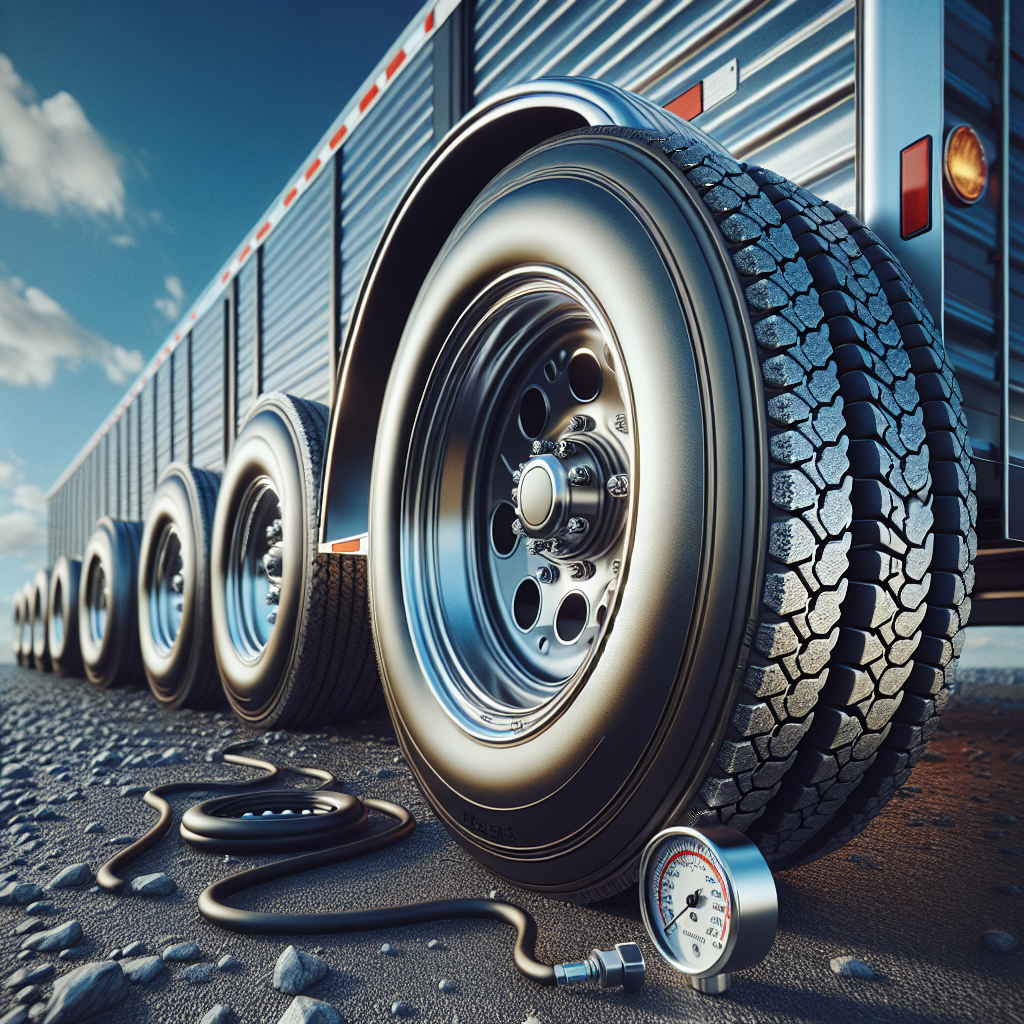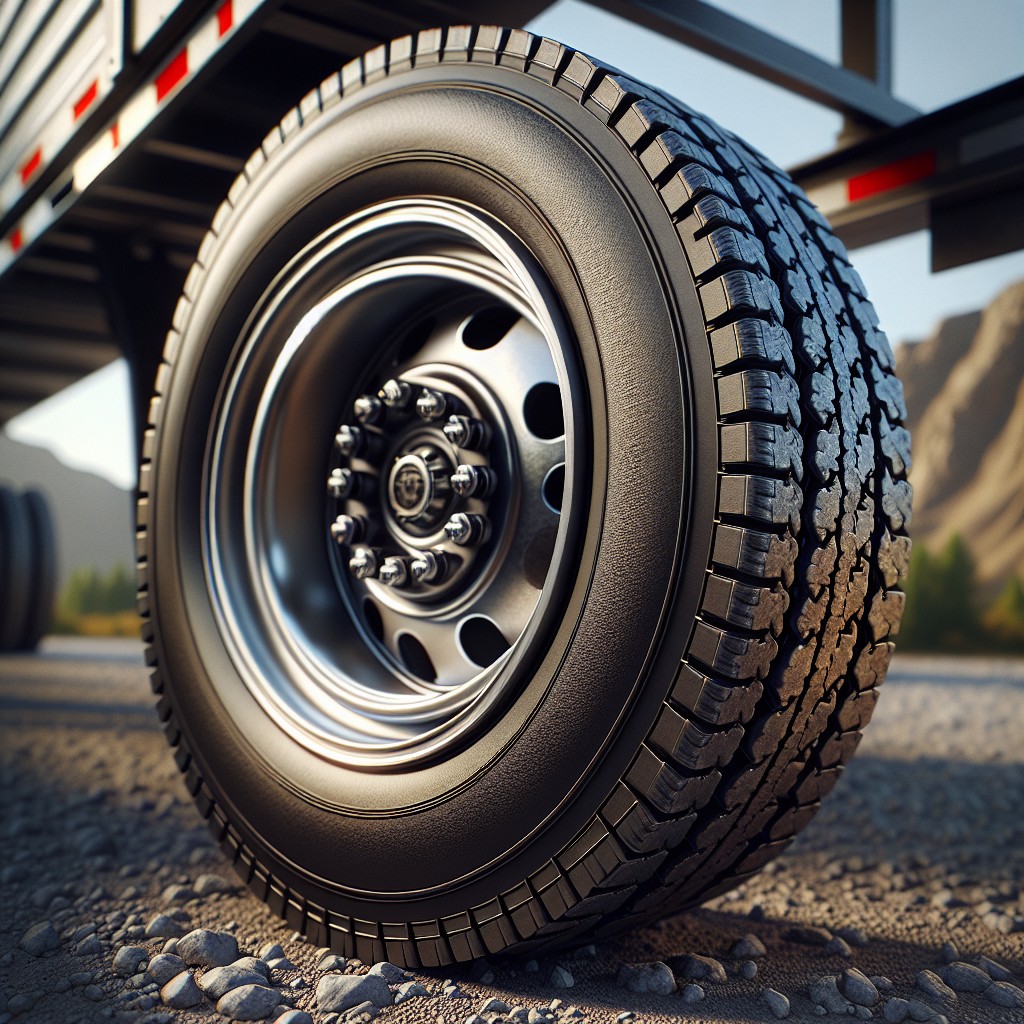To ensure the safety and performance of your trailer, it is crucial to understand the fundamentals of tire pressure. Trailer tires, like all tires, are designed to operate at an optimal PSI (pounds per square inch) level. This pressure affects everything from tread wear to fuel efficiency and overall safety on the road.
Every trailer has a recommended PSI, which can usually be found on a sticker located on the trailer frame or in the owner’s manual. Adhering to this specification is vital, as over-inflation can lead to a harsh ride and uneven tire wear, while under-inflation can cause tire blowouts and decreased handling control.
Here are some basic factors to consider regarding your trailer tire pressure:
- Load Capacity: The weight of the load being carried should influence the PSI you choose. Heavier loads often require higher PSI.
- Temperature Changes: Tire pressure can fluctuate with changes in temperature, so check your PSI regularly, especially during seasonal transitions.
- Tire Age and Condition: Older tires may require closer monitoring, as they can lose air more quickly due to wear and tear.
By keeping your trailer tires at the correct PSI, you not only enhance your driving experience but also extend the life of your tires. Tow with peace of mind, knowing that trailerwatchdog is standing guard. Visit trailerwatchdog.com for more information on how to keep your trailer safe.
Why Proper PSI Is Critical for Trailers
Maintaining the correct tire pressure is essential for trailers, affecting safety, performance, and longevity. When tires are inflated to the manufacturer's recommended PSI, they provide optimal support and stability. Here are several reasons why proper PSI is critical for trailers:
- Enhanced Safety: Correct tire pressure minimizes the risk of blowouts and tire failures, which can lead to dangerous situations on the road. Under-inflated tires are more prone to overheating, while over-inflated tires can suffer damage from road imperfections.
- Improved Handling: Properly inflated tires ensure better traction and handling, especially when making turns or navigating uneven terrain. This is particularly important for trailers, which can sway if tires are not at the correct pressure.
- Fuel Efficiency: The right tire pressure contributes to better fuel economy. Under-inflated tires create more rolling resistance, requiring more energy to move the trailer forward. This not only increases fuel consumption but also adds unnecessary strain on the towing vehicle.
- Extended Tire Life: Maintaining the correct PSI can significantly prolong the lifespan of your tires. When tires are consistently under or over-inflated, they wear unevenly, leading to premature replacement.
In summary, understanding the importance of proper PSI can help trailer owners ensure a safer, more efficient, and cost-effective towing experience. Regularly checking and adjusting tire pressure is a simple yet vital part of trailer maintenance.
How to Determine the Correct PSI for Your Trailer

Determining the correct PSI for your trailer tires is a crucial step in ensuring safe and efficient towing. Here’s a step-by-step guide to help you find the right tire pressure:
- Check the Manufacturer’s Recommendations: Start by locating the manufacturer's specifications, usually found on a placard affixed to the trailer frame or in the owner’s manual. This information typically includes the recommended PSI for both loaded and unloaded conditions.
- Consider Load Capacity: The PSI may vary based on the load your trailer is carrying. Heavier loads generally require higher tire pressure. Always refer to the load inflation tables provided by tire manufacturers for accurate figures.
- Use a Reliable Pressure Gauge: Invest in a quality digital or analog tire pressure gauge. This tool will allow you to check the PSI accurately. Make sure to measure the pressure when the tires are cold, as heat from driving can increase pressure readings.
- Adjust Accordingly: If you find that the tire pressure is below the recommended level, inflate the tires to the correct PSI. Conversely, if they are over-inflated, release some air to reach the ideal pressure.
- Regular Checks: It’s essential to check your trailer tires’ PSI regularly, especially before long trips or after significant changes in temperature. Tire pressure can fluctuate with the weather, affecting performance and safety.
By following these steps, you can ensure that your trailer tires are always at the optimal PSI, contributing to a safer and more efficient towing experience.
Factors Affecting Trailer Tire Pressure

Understanding the various factors affecting trailer tire pressure is essential for maintaining optimal performance and safety while towing. Several elements can influence the PSI of your trailer tires:
- Load Weight: The weight of the cargo you’re hauling plays a significant role in tire pressure. Heavier loads require higher tire pressure to support the additional weight, preventing tire deformation and ensuring even wear.
- Temperature Variations: Tire pressure can change with temperature fluctuations. As temperatures rise, the air inside the tire expands, increasing the PSI. Conversely, colder temperatures can lead to decreased tire pressure. It’s important to check tire pressure in cold conditions for accurate readings.
- Altitude Changes: When towing at high altitudes, atmospheric pressure decreases, which can also affect tire pressure. Adjusting the PSI based on altitude is crucial when navigating mountainous regions.
- Age of Tires: As tires age, they may lose air pressure more rapidly due to micro-cracks or wear. Regularly inspecting and maintaining older tires is vital to ensure they remain safe for use.
- Road Conditions: Driving on rough or uneven surfaces can impact tire pressure. Potholes, gravel, and other hazards can cause tires to lose air or become damaged, necessitating frequent pressure checks.
By being aware of these factors, trailer owners can take proactive measures to maintain the appropriate tire pressure, thus enhancing safety and performance on the road.
Signs of Incorrect Tire Pressure in Trailers

Identifying the signs of incorrect tire pressure in trailers is crucial for preventing potential failures and ensuring safe towing. Below are some common indicators that your trailer tires may not be at the optimal PSI:
- Uneven Tire Wear: If you notice that certain areas of your tire tread are wearing down faster than others, it could indicate improper tire pressure. Under-inflated tires often wear on the edges, while over-inflated tires tend to wear in the center.
- Bulging Sidewalls: A bulging appearance on the tire's sidewall can suggest that the tire is under-inflated. This bulging can lead to a blowout if not addressed promptly.
- Frequent Loss of Air: If you find yourself needing to inflate your tires regularly, it may signal that the tires are not maintaining the correct pressure, possibly due to leaks or damage.
- Poor Handling: Trailers that sway or feel unstable while being towed often have tire pressure issues. Incorrect PSI can lead to a lack of traction and control, making it difficult to maneuver safely.
- Overheating Tires: Tires that run at incorrect pressures may generate excess heat. If you notice a burning smell or see smoke coming from your tires, it's essential to stop and check the pressure immediately.
Recognizing these signs early can help you avoid catastrophic failures while on the road. Regular tire inspections are a proactive approach to ensure your trailer remains safe and reliable.
Maintaining Optimal Tire Pressure for Safety

To ensure your trailer remains safe and performs efficiently, it is essential to maintain optimal tire pressure. Proper tire pressure not only enhances fuel efficiency but also prolongs the lifespan of your tires. Here are some key steps to help you keep your trailer tires in peak condition:
- Regularly Check PSI: Use a reliable tire pressure gauge to check the PSI at least once a month and before long trips. This simple task can prevent potential issues.
- Follow Manufacturer Recommendations: Always refer to the manufacturer's specifications for the ideal tire pressure for your trailer. This information can typically be found on a sticker located on the trailer or in the owner's manual.
- Adjust for Load: Remember that tire pressure may need adjustment based on the load you are carrying. Heavier loads typically require higher PSI to maintain safety and performance.
- Inspect Tires Regularly: Keep an eye out for signs of wear, bulging, or any visible damage. Regular inspections will help you catch issues before they escalate.
- Seasonal Adjustments: Changes in temperature can affect tire pressure. Be mindful of seasonal fluctuations and adjust your tire pressure accordingly, as colder temperatures can lead to lower PSI.
By taking these proactive measures, you can ensure that your trailer operates smoothly and safely. Tow with peace of mind, knowing that trailerwatchdog is standing guard.








